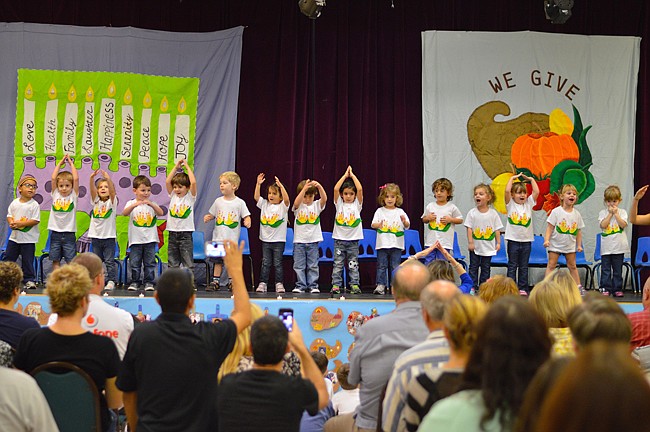- April 19, 2024
-
-
Loading

Loading

The year 2013 won’t be a typical one for those celebrating Hanukkah – or shall we say “Thanksgivukkah.”
For the first time since the late 1800s, Thanksgiving falls within the eight-day Jewish holiday of Hanukkah. People are affectionately referring to it as “Thanksgivukkah,” planning to celebrate by creating dishes that mix the two holidays like sweet potato latkes or pumpkin-flavored challah bread.
“I think it’s really exciting that Thanksgiving and Hanukkah are combined,” said Amy Schwartz, marketing director for the Roth Jewish Community Center of Greater Orlando. “Interestingly they’re a real natural fit together because they both share the common theme of religious freedom. In many ways Hanukkah belongs with Thanksgiving more than it belongs with Christmas.”
Here are six obscure facts about Hanukkah and the story behind the holiday to commemorate the rare phenomena.
• Hanukkah isn’t considered to be a major Jewish holiday. History designates it as a minor holiday compared to holidays like Passover, Rosh Hashanah, Yom Kippur or Shavuot. The holiday’s prevalence increased in recent decades due to it taking place near Christmas. It became a commercial response to the man in the big red suit.
• It isn’t a religious holiday, despite its association with religious freedom. Hanukkah tends to be more festive in nature than sacred, celebrated in the home instead of the synagogue.
• Giving gifts isn’t a major part of the holiday. In Hanukkah’s earliest traditions, not only did children not receive gifts, they were expected to give themselves. School children would give their teachers small amounts of money as a sign of gratitude called a Hanukkah gelt. That custom continued for hundreds of years until the 19th century when it evolved into parents giving their children Hanukkah gelts. It stayed that way up until the current generation, which now gives gifts to children instead.
• People of the Jewish culture are encouraged to eat fried foods during the holiday. The story of Hanukkah focuses on the Jews reclaiming their temple after Syrian-Greek soldiers seized it in the year 168 B.C. The temple had been used to worship Greek gods, so to purify the structure the Jews chose to light the temple’s menorah for eight days. But to their dismay, they only had enough oil to last for a single day. The small amount of oil proved to be enough however, as it miraculously lasted for eight days. The symbolism of oil has led to the prevalence of fried foods like potato pancakes called latkes and donuts called sufganiyot during Hanukkah.
• The holiday’s signature toy, known as a dreidel, originated as a method of disguise for Jewish scholars. A similar toy existed during the Hanukkah era, when Syrian-Greeks forbade the open practice of Judaism. Jewish scholars brought the toys with them during discussions and secret gatherings. If a Syrian-Greek soldier burst in on them, the Jews would use the spinning tops to resemble a gambling game. Dreidels have been used as a playful game ever since.
• Calculations predict that Thanksgivukkah won’t happen again for another 70,000 to 80,000 years – so make this one count.
• The publicizing of Hanukkah remains an integral part of the holiday. Jewish families to this day place their menorahs on windowsills for all to see – a testament to the fight for religious freedom told in the story behind the holiday. Many free Hanukkah events in Central Florida occur each year to help spread Jewish culture, including Hanukkah in the Park, an event with live music and activities this Saturday at 7 p.m. in Winter Park’s Central Park.
“It’s really important to us that people are aware that we exist and that we have our own culture,” said Nancy Ludin, Executive Director of the Jewish Pavilion, an Altamonte Springs organization that brings Jewish holidays to elderly communities.
“Even though Hanukkah is considered by traditional Judaism to be a minor Jewish holiday, I think it’s been a blessing in that it’s become a window into Judaism and the Jewish culture for the broader world,” Schwartz said.